Đại diện trường Canada tư vấn du học cho phụ huynh, học sinh Việt Nam trong một triển lãm tổ chức hồi tháng 10
ẢNH: NGỌC LONG
Xét duyệt sẽ chậm và khó hơn?
Du học diện miễn chứng minh tài chính (SDS) là chương trình visa ưu tiên được Bộ Di trú, tị nạn và quốc tịch Canada (IRCC) áp dụng ở 14 quốc gia trên toàn cầu, trong đó có Việt Nam. Ứng viên chỉ cần đạt yêu cầu về tiếng Anh và đáp ứng các tiêu chí khác theo quy định là có thể xin giấy phép du học diện SDS, với thời gian xét duyệt trung bình là 20 ngày, IRCC thông tin. Tuy nhiên, IRCC hôm 8.11 cho biết sẽ ngừng nhận đơn xin du học theo diện SDS. Quyết định có hiệu lực từ 14 giờ cùng ngày (0 giờ ngày 9.11 tại Việt Nam). Đồng nghĩa, người Việt nay phải chứng minh tài chính bằng ít nhất một trong các giấy tờ được đề cập trong quy định hiện hành, thay vì chỉ cần nộp chứng nhận đầu tư bảo đảm (GIC) trị giá 20.635 CAD (374 triệu đồng) cấp bởi các ngân hàng Canada. Tuy nhiên, du học sinh từ nay vẫn có thể dùng GIC để chứng minh tài chính, IRCC lưu ý. IRCC lý giải, việc dừng SDS nhằm củng cố tính toàn vẹn của hệ thống, bảo vệ sinh viên tốt hơn và đảm bảo mọi sinh viên được tiếp cận quy trình nộp đơn xin giấy phép du học một cách công bằng và bình đẳng. Bên cạnh đó, chính phủ Canada cũng dừng diện NSE, vốn là chương trình tương tự SDS nhưng đang áp dụng tại Nigeria. Như vậy, hồ sơ diện SDS, NSE nộp sau 0 giờ hôm nay sẽ xử lý theo quy trình thông thường. "Canada vẫn tiếp tục chào đón sinh viên quốc tế từ khắp nơi trên thế giới. Thay đổi này cũng sẽ không ảnh hưởng tiêu cực đến điều kiện xin giấy phép du học của những ai đến từ các quốc gia từng áp dụng SDS", thông cáo từ IRCC nhấn mạnh. Theo IDP, chương trình SDS áp dụng ở Việt Nam từ ngày 15.3.2018, đến nay đã có hơn 6 năm vận hành. Bên cạnh thời gian xử lý nhanh hơn, diện SDS có tỷ lệ chấp thuận cao hơn so với quy trình xin giấy phép du học thông thường. Bởi, theo dữ liệu từ IRCC, có 22% người Việt nộp đơn xin giấy phép du học theo diện SDS ở năm 2022 với tỷ lệ chấp thuận là 77%. Mức này cao hơn 16% so với quy trình thông thường trong năm đó. Vì lẽ đó, sinh viên nay cần chuẩn bị hồ sơ sớm và kỹ càng hơn trước, theo tờ CIC News. Và theo thông tin cập nhật từ IRCC vào ngày 5.11, thời gian xử lý trung bình ở hiện tại với các đơn xin giấy phép du học nộp từ Việt Nam là 11 tuần.Sinh viên quốc tế tại một số quốc gia nay sẽ không còn được du học Canada theo diện miễn chứng minh tài chính
ẢNH: UNIVERSITY OF BRITISH COLUMBIA
Liên tiếp thắt chặt quy định
Trong 12 tháng qua, Canada liên tiếp ban hành nhiều quy định với mục tiêu cắt giảm số người tạm trú ở nước này, trong đó có du học sinh. Cụ thể, Canada giới hạn chỉ tiêu cấp giấy phép du học mới mỗi năm và vào năm 2025, Canada sẽ chỉ cấp tối đa 437.000 giấy phép du học mới. Mức này cũng bao gồm cả thạc sĩ và tiến sĩ, thay vì chỉ giới hạn ở bậc cử nhân như năm 2024. Ngoài ra, từ đầu tháng 11, IRCC quy định đương đơn muốn xin giấy phép làm việc sau tốt nghiệp (PGWP) giờ phải bổ sung chứng chỉ tiếng Anh hoặc tiếng Pháp theo yêu cầu của cấp độ học. Ngoài ra, với những trường hợp không tốt nghiệp cử nhân, thạc sĩ, tiến sĩ ở trường ĐH, đương đơn phải học những ngành trong danh sách mà IRCC công bố mới được xin PGWP. Trước đó, IRCC cũng tăng gấp đôi yêu cầu chứng minh tài chính đối với sinh viên quốc tế, lên mức 20.635 CAD, bên cạnh học phí, chi phí đi lại trong năm đầu tiên. IRCC còn quy định đương đơn theo học các chương trình thạc sĩ có thời lượng đào tạo từ 16 tháng trở lên mới đủ điều kiện để vợ hay chồng xin giấy phép đi làm, thay vì chỉ cần học thạc sĩ như trước. Tuy nhiên, chuyên gia nhận định việc thắt chặt quy định sẽ mang đến nhiều cơ hội mới cho du học sinh Việt. Như ở hiện tại, hồ sơ được xét duyệt ở ba cấp là nhà trường, chính quyền tỉnh bang hoặc vùng lãnh thổ, và cuối cùng là chính phủ liên bang. Điều này giúp chất lượng hồ sơ ngày càng cải thiện. "Dựa trên dữ liệu về số giấy phép du học cấp cho các quốc gia, chúng ta còn có thể thấy lớp học Canada sẽ đa dạng hơn trước, giúp trải nghiệm học tập tốt hơn. Ngoài ra, số du học sinh đến Canada năm nay sẽ giảm, giúp người Việt tăng cơ hội trúng tuyển vào các ngành, trường vốn rất cạnh tranh và tăng khả năng định cư", ông Tùng Phan, Giám đốc CEI Toronto (Canada) kiêm Giám đốc Phan Immigration (Canada), nói với Thanh Niên gần đây. Theo báo cáo từ IRCC, Canada thu hút hơn 1 triệu sinh viên quốc tế đến học trong năm 2023. Thống kê của IRCC cũng cho thấy tổng số người Việt học tập tại Canada từng có xu hướng giảm liên tục, từ 21.480 người vào 2019, đến 2022 còn 16.140 người. Nhưng vào năm 2023, du học sinh Việt ở Canada tăng nhẹ, lên 17.175 người và giữ vị trí thứ 8 về số lượng.Thanhnien.vn
Nguồn:https://thanhnien.vn/canada-dung-cho-phep-nguoi-viet-du-hoc-khong-can-chung-minh-tai-chinh-185241109100502475.htm


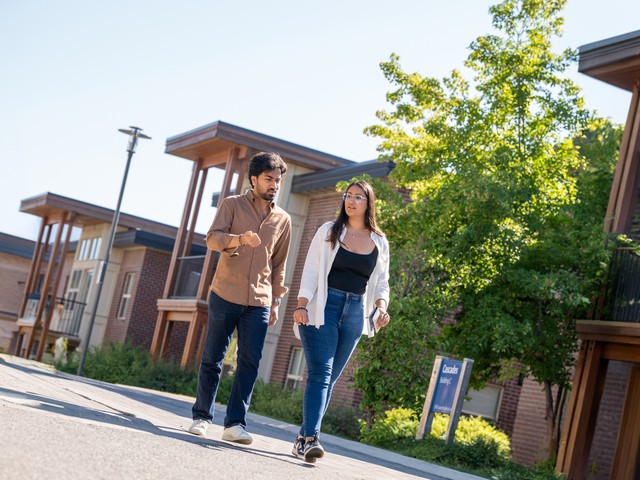














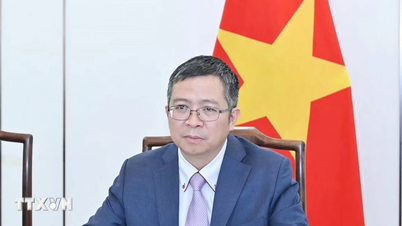
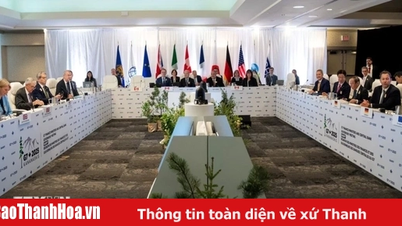

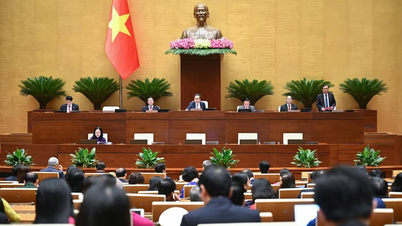































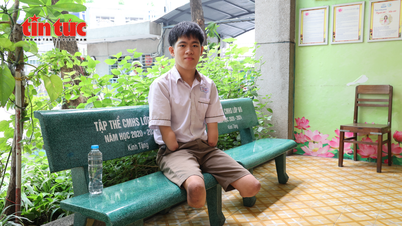






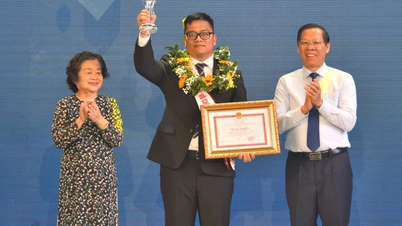





























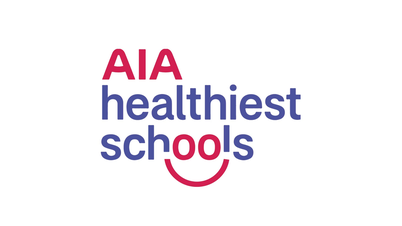






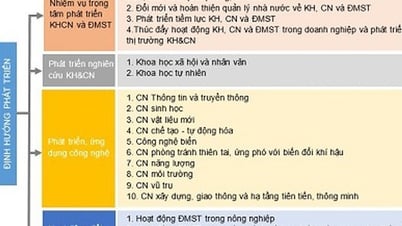







Bình luận (0)